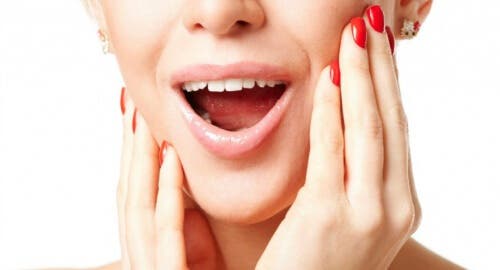Most people grind their teeth over and over again. However, when this action becomes a recurring habit, the problem becomes what we call bruxism. Have you ever wondered what bruxism is? Although this term may seem a little strange, it refers to the habit of grinding your teeth. Often sufferers grit their teeth, unconsciously, either while awake or sleeping.

It’s most frequent form is nighttime bruxism, which can be accompanied by other sleep problems such as snoring or sleep apnea. Initially it does not produce obvious consequences, but over time it can lead to certain complications.
Therefore, it is essential to know how it manifests and what can be done to reduce or control it. In this opportunity we want to review your symptoms and some solutions for your treatment. Discover them!
What is bruxism? What are your symptoms?
Most people grind their teeth over and over again. However, when this action becomes a recurring habit, the problem becomes what we call bruxism. It is usually a condition that results from stress and anxiety disorders.
Although it is not initially serious, its lack of control can lead to permanent damage to the teeth. Also, it can be a cause of jaw and head pain. Other symptoms that are triggered by this condition are:
- Earache and neck pain.
- Weak and sensitive gums.
- Broken teeth.
- Pain when chewing.
- Difficulty sleeping.
How can it be treated?
Many people overcome bruxism without the need for specific treatment. However, sometimes it is necessary to approach it both from the psychological point of view, and in the physical consequences that it derives. Thus, therapy may include stress management, exercises, and dental treatments.
Psychological approach
The psychological approach to control bruxism aims to better manage the stress and anxiety crises that affect this problem. For this, relaxation strategies are usually implemented, such as meditation or yoga.
It is also intended to make changes in behavior. Therefore, therapies are recommended to correct teeth grinding misconduct. The professional can indicate exercises for a correct position of the mouth and jaw.
Dental treatments
Since the teeth can suffer a remarkable deterioration due to bruxism, the doctor can suggest some supplements to take care of oral health. Of course, these methods minimize the impact of bruxism on the teeth, but do not stop the problem as such.
- Mouthguards: Their role is to keep teeth apart to minimize damage from clenching or grinding.
- Dental correction:it is used in severe cases to remodel and repair damage to dental pieces.
Medicines
So far there is insufficient evidence to determine the efficacy of medications in the treatment of bruxism. However, some have had positive results in managing their symptoms. The most common are usually:
- Muscle relaxants.
- Botox injections: useful for those who have severe bruxism and do not respond to other treatments.
- Medicines for anxiety or stress.
Conclusion
It is advisable to make some changes in lifestyle; especially when it comes to sleep quality. Learning to relax and free your mind before going to bed will be very helpful in reducing the chances of clenching your jaws when sleeping.
In this same line, the consumption of stimulants should be avoided at night to avoid sabotaging rest. On the other hand, it is essential to learn to manage stress and reduce it.
Finally, it will be extremely important to periodically visit the dentist, who will make a series of specific indications, in addition to those already mentioned.















